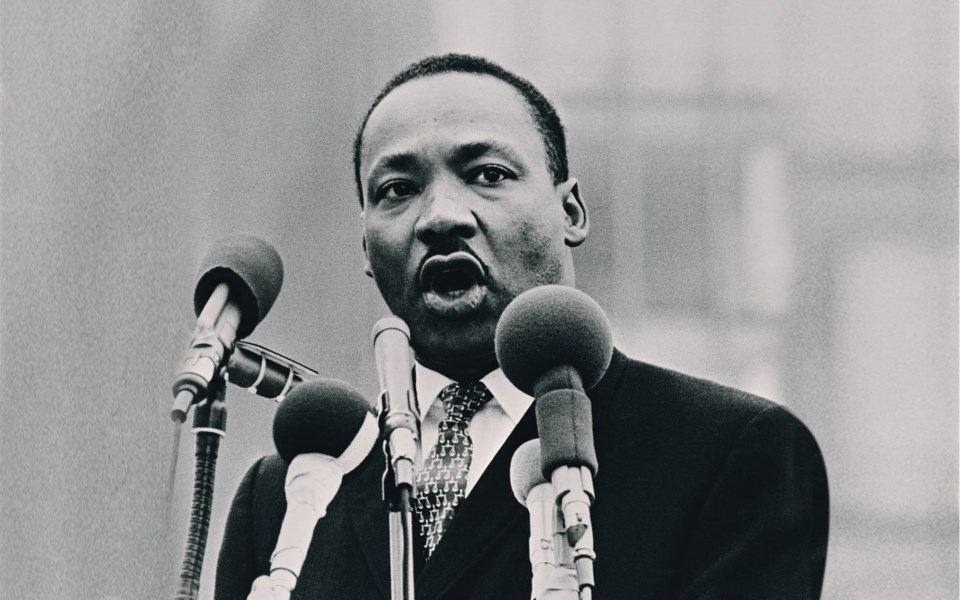For anyone with a sense of history, it was impossible to watch U.S. President Barack Obama at the funeral of the slain Pastor Clementa Pickney last week and not be reminded of the Rev. Martin Luther King, particularly at a moment of uncanny and tragic parallel 52 years ago.
Obama came to Charleston, S.C., to mourn Pinckney who, along with eight of his parishioners, were murdered by a gunman in their Emanuel African Methodist Episcopal Church June 17.
Cynics might say Obama’s cadences were deliberately calibrated to echo King’s, but the parallels went beyond mere elocution. The president was leading his nation in grief over an act of mass murder that was shocking for, among other things, its targeted location and the evident racist motivation.
On Sept. 15, 1963, in Birmingham, Ala., four African-American girls were killed and 22 other people were injured when the Ku Klux Klan planted 15 sticks of dynamite under the 16th Street Baptist Church. The incident stunned the nation for the age of its victims and the brazen, racist assault on a place of worship.
There can hardly be silver linings where children — or anyone — lie slain. Yet these two acts, half a century apart, speak to not only the depravity of evil people, but to the catalyzing effect of terror and tragedy.
The 16th Street Baptist bombing was a turning point in the American civil rights movement. The barbarity of the perpetrators alienated those who might have harboured sympathies for their bigotry and mobilized those who rejected it into significant achievements, including equal rights legislation.
The young man accused of the Emanuel AME murders is said to have been attempting to initiate a race war. Instead, the country has come together even at a time of deep racial conflict around police brutality against African-Americans and the ever-present background noise of race relations and unhealed sins of the past.
The cold-bloodedness of the attack on people because of their skin colour shook the nation. But so did the location.
There is something that strikes us — religious and secular almost equally, I think — as particularly intensified when perpetrators strike in a place of worship. People should feel safe and should be free from mass murder wherever they are. We should be outraged and mobilized to action whenever any innocent is killed. But there is something especially egregious about defiling the sanctity of a church or other place of worship. And this seems to be part of the attraction for people filled with hatred.
In the same week, at least 27 people were killed when a mosque was blown up in Kuwait. This is an increasingly familiar form of carnage wherever the terror group ISIS acts out.
But worldwide, on a much smaller scale, places of worship are frequently singled out for attack. It is a strategy that sometimes is motivated by explicit intra-religious sectarian hatred. In other cases, the locations are targeted precisely because they represent the closely held values of an identifiable group. An attack on a church, synagogue, mosque or temple is intended to inflict a deep psychological wound to the survivors.
Yet in most cases, as horrible as the crimes are, they also provide an opening for cross-cultural connection.
In 1985, two Vancouver synagogues were attacked by arsonists, one of them destroyed. Neighbouring Christian churches rallied around to commiserate with their Jewish neighbours.
A similar reaction took place just last year after a mosque in Cold Lake, Alta., was defaced with the spray-painted words “Go home.” The people of Cold Lake responded by showering the mosque and its congregants with support, including cleaning up the graffiti and carrying signs asserting “You are home.”
Last month, a church in northern Israel was attacked, presumably by Jewish religious extremists. This week a group of top rabbis and the speaker of the Israeli parliament came together in a campaign to both raise money for the congregation and to declare religious violence unacceptable.
The oddly jubilant funeral for Rev. Pickney, with its animated, vocal audience and stridently uplifting message of hope and unity may have been the perfect antidote to the barbarous act. Nine lives will never be revived. But the determination of a country to oppose racism and seek understanding and compassion among people has been fortified. In this, the act of the perpetrator had the exact opposite of its intent.
PacificSpiritPJ@gmail.com
@Pat604Johnson



